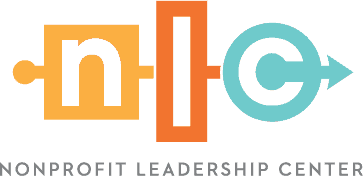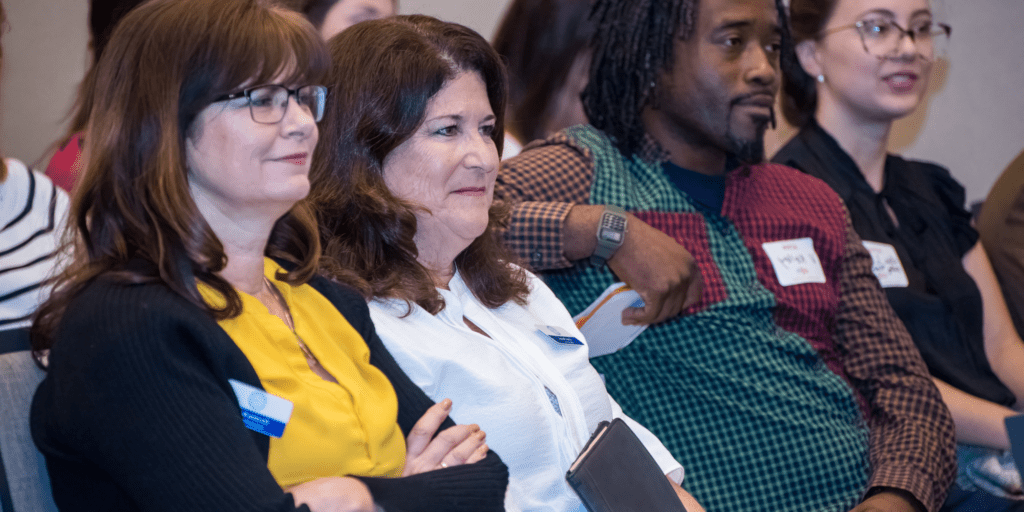Have you ever wondered why some organizations succeed and others struggle? From for-profit companies to nonprofits of every size, one of the best indicators of high-performing organizations is a dedicated focus on creating a learning culture.
Over the years, I’ve witnessed a deep correlation between an organization’s commitment to talent development and continuous learning and their employees’ connection to one another. In fact, as hiring and talent retention becomes increasingly challenging, research shows that nearly half of employees say training opportunities were a factor in choosing their current company, and 76% say they are more likely to stay with a company that offers continuous training (SHRM, 2022).
What is a learning culture, and how do you know if your organization has one? Let’s explore this concept and discuss how to go about developing a learning culture in nonprofit organizations.
What is a learning culture?
Organizations dedicated to creating a learning culture encourage everyone to actively and continuously seek opportunities to develop themselves and others. The Association for Talent Development defines a culture of learning as one in which employees constantly seek, share and apply new knowledge and skills to improve individual and organizational performance.
Organizations with strong learning cultures don’t view talent development as taking a few employee trainings for compliance; they share a mindset where consistently pursuing learning, knowledge and new skills are part of their core values.
Research suggests that high-performing organizations provide employees with the necessary and consistent training to grow personally and professionally. At the Nonprofit Leadership Center, nonprofit professionals who work in learning cultures often say their training and development efforts have helped them perform better, feel more confident and are prepared to seek promotions within their organizations.
5 Strategies for Developing a Learning Culture in Nonprofit Organizations
Creating a learning culture isn’t something that happens overnight. It requires us to understand our strengths and areas of opportunity, commit to ongoing growth and development, and realize that being better tomorrow than we are today takes grace and support from others.
Creating a learning culture starts with a commitment to learning. Here are five tips to help your organization commit to learning so you can create or deepen the learning culture at your nonprofit:
1. Ask team members about their learning interests.
To inspire a commitment to continuous improvement and learning, you must first tap into the personal interests of your people. There is incredible power in interest-based and inquiry-based learning. Ask your team members what they want to know more about, what they believe will help their growth, and how you can better support them. An excellent place to start is asking people three questions: 1) where do you want to be in three years, 2) how do you propose getting there, and 3) how can I help you be successful?
2. Align learning to personal and professional goals.
Once you understand a person’s individual goals, the next step is to connect them to your organization’s performance objectives so both your employees and nonprofit benefit. For team members who want to ask their boss for training, aligning their personal goals with organizational benefits is a great place to start.
3. Celebrate and amplify learning by sharing it.
Learning and leadership go hand in hand. We always say that leaders are learners, and learners are leaders. Celebrating learning supports and champions your people’s commitment and makes learning attractive to others.
4. Build a budget to support learning and development.
Budgets demonstrate priorities. Organizations genuinely committed to creating a learning culture invest resources into frequent employee training, learning and continuous improvement. Developing a learning culture in nonprofits may be attractive to funders who care about organizational growth and capacity and want to enhance your efforts.
5. Incorporate learning into new workflows.
Use what you and others learn to innovate, be more agile and respond in new ways. It’s good for business and empowers those around you to be curious and creative.
As nonprofits continue to pursue mission goals and optimistically navigate the future, ensuring our people are at the center of our growth plans is critical. If we are growing and those around us are growing, our programs and services — indeed our very brands — will be on a correlated and ever-compounding growth trajectory.
Find Continuous Learning Opportunities for Individuals & Teams
The Nonprofit Leadership Center supports nonprofits committed to creating learning cultures by offering ongoing and robust learning experiences. From half and full-day training classes and certificate programs to peer-based leadership circles and custom solutions to meet the needs of teams and organizations, we’re here to help you grow and thrive. Explore our upcoming events and training programs.





